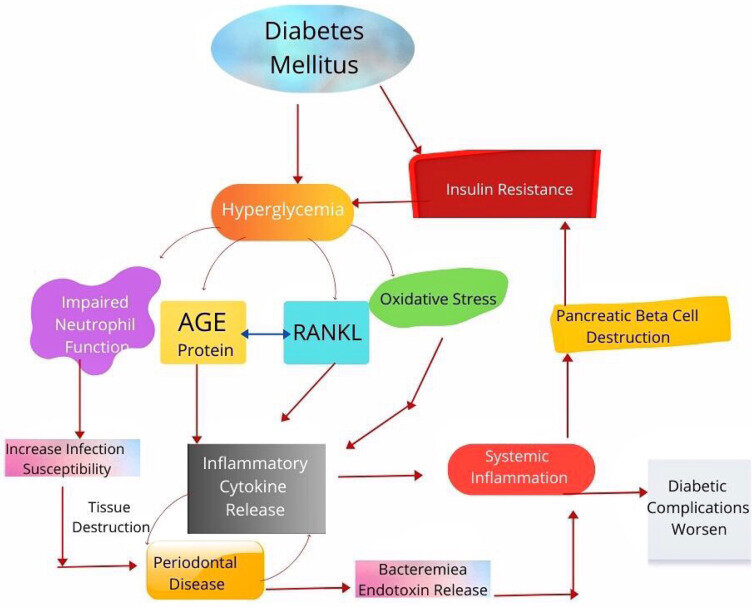The Arlington Heights dentist and their expert team of periodontists facilitate extensive dental services to prevent gum diseases or halt their progression.
Having high blood sugar levels can significantly increase your risk of developing periodontal disease. In turn, gum diseases further increase sugar levels which makes diabetes worse. Let’s explore the interconnectivity of diabetes and periodontal disease.
What is periodontal disease?
Periodontal disease is the inflammation and destruction of the gingival tissues and the underlying bone, causing severe attachment and tooth loss.
What is diabetes?
Diabetes is a chronic illness characterized by increased blood sugar levels. Type 1 diabetics do not produce any insulin, while type 2 diabetics cannot regulate insulin levels that increase the glucose levels in the blood.
What is the link between diabetes and periodontal disease?
Following are the aspects through which both are inter-connected:
Poor oral hygiene: Improper brushing techniques can pave the way for bacterial infiltration. The bacteria can ingest the excess sugar present between the teeth and invade the tissues more freely subgingivally. This can result in harmful toxins and acids that harm your body’s metabolic activities.
Increased blood sugar levels: Severe forms of periodontal disease can elevate the blood sugar levels in your body. This prolongs the time that the body has to function with increased blood glucose levels. This provides nutrition to the already existing bacteria that worsen periodontal problems.
Abnormal thickening of the blood vessels: Thickening of the blood vessels is one of the major complications of diabetes. These vessels help to deliver nutrients to tissues and remove waste products. With diabetes, these vessels do not perform their normal functions compromising the resistance of the gingival tissues, leading to infection and gum disease.
Unhealthy habits like smoking: Smoking can negatively impact the health of your oral tissues through a slow healing process. For diabetics who smoke the risk of periodontal disease is significantly increased.
How can you treat periodontal disease if you are a diabetic?
Your dentist will evaluate the condition of your teeth and oral tissues. Usually, diabetics are recommended to visit their dentists at least twice yearly.
- Simple nonsurgical procedures like scaling and root planing are performed to remove plaque and tartar and eliminate the residual bacteria. This can lower the HbA1c (hemoglobin molecule blood test) count by 20% in six months.
- You may also be prescribed antibiotics in the form of gels, mouthwashes, or oral pills that help reduce the gingival pockets to promote healing.
Collaborate with your dentist closely if you are suffering from diabetes for better oral health and improved quality of life.












